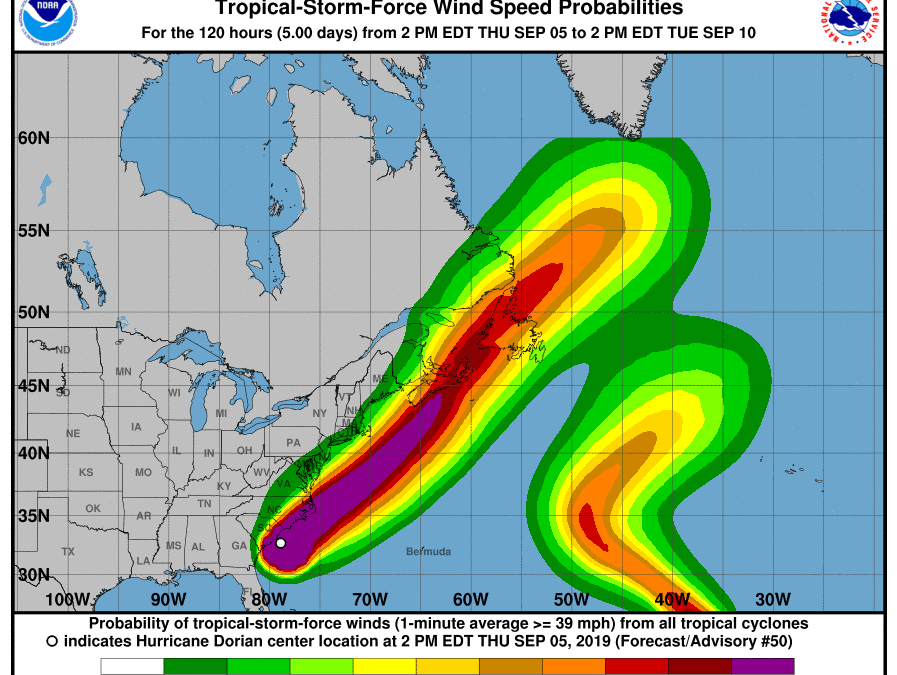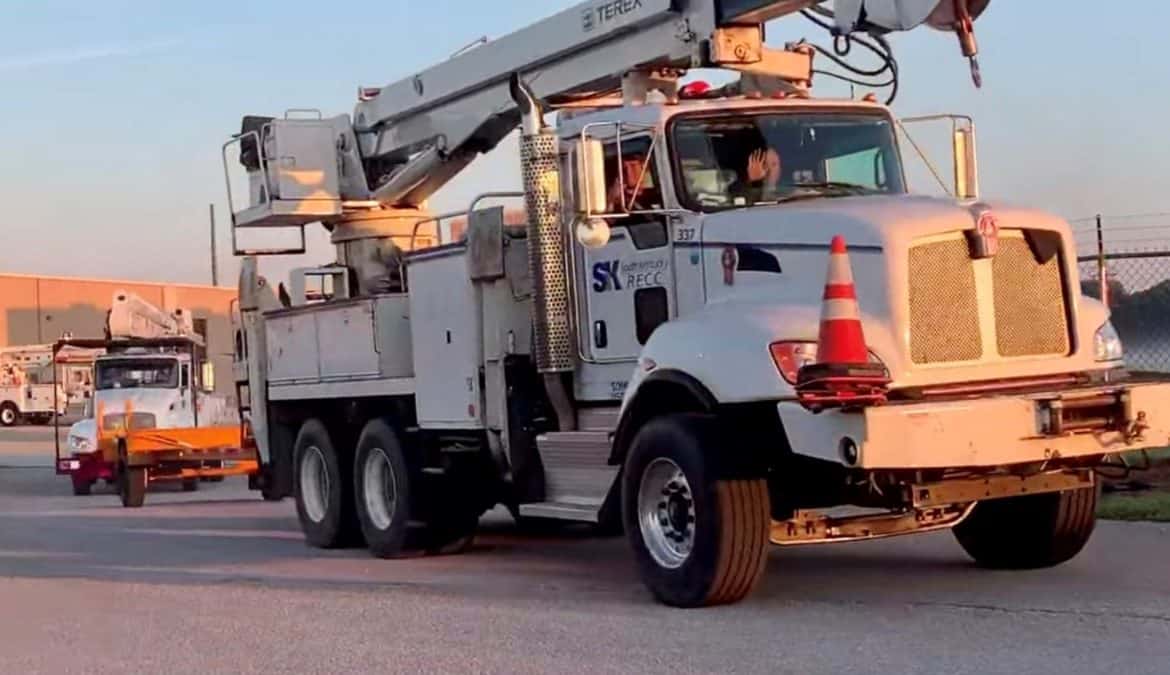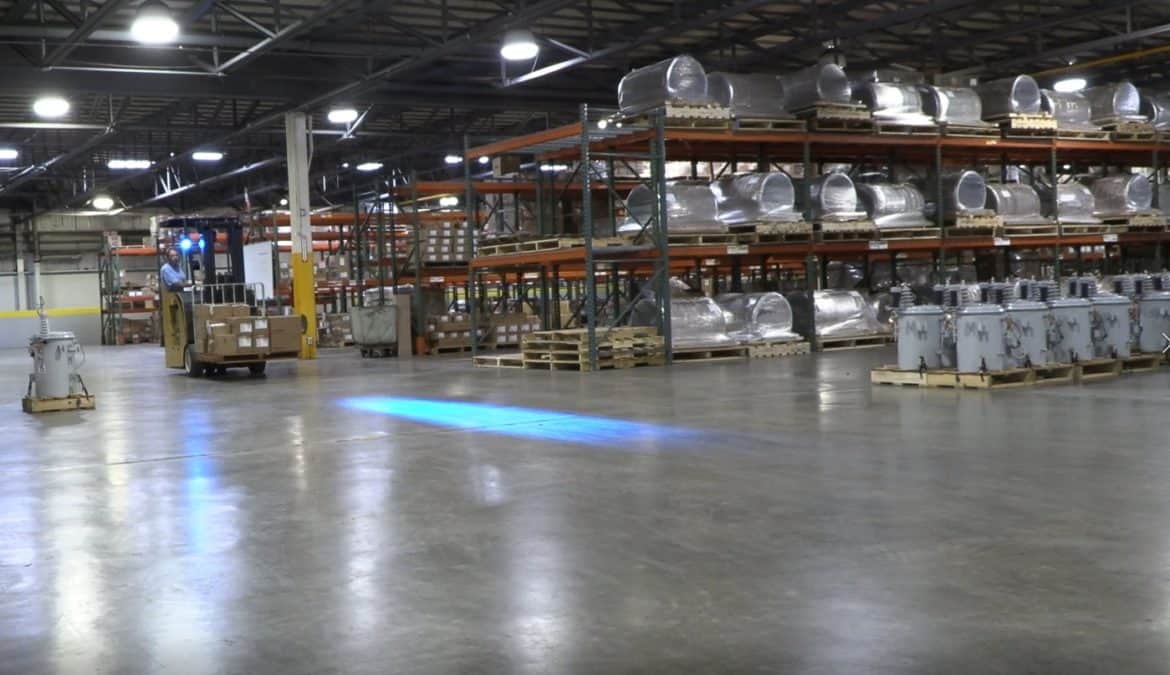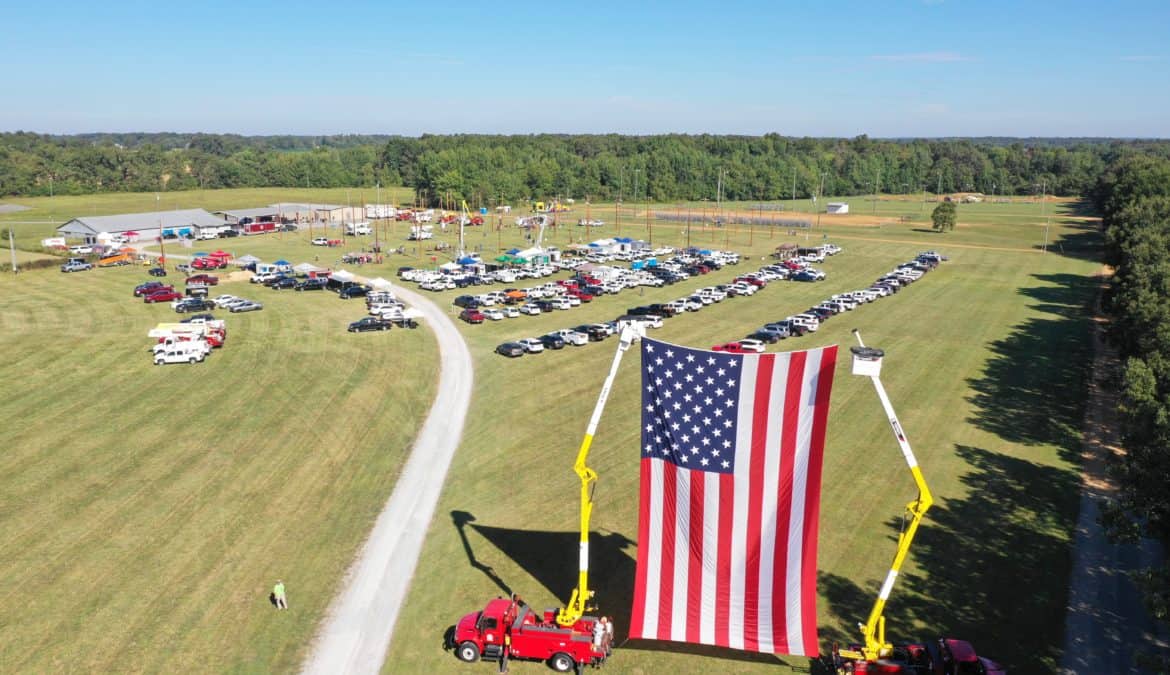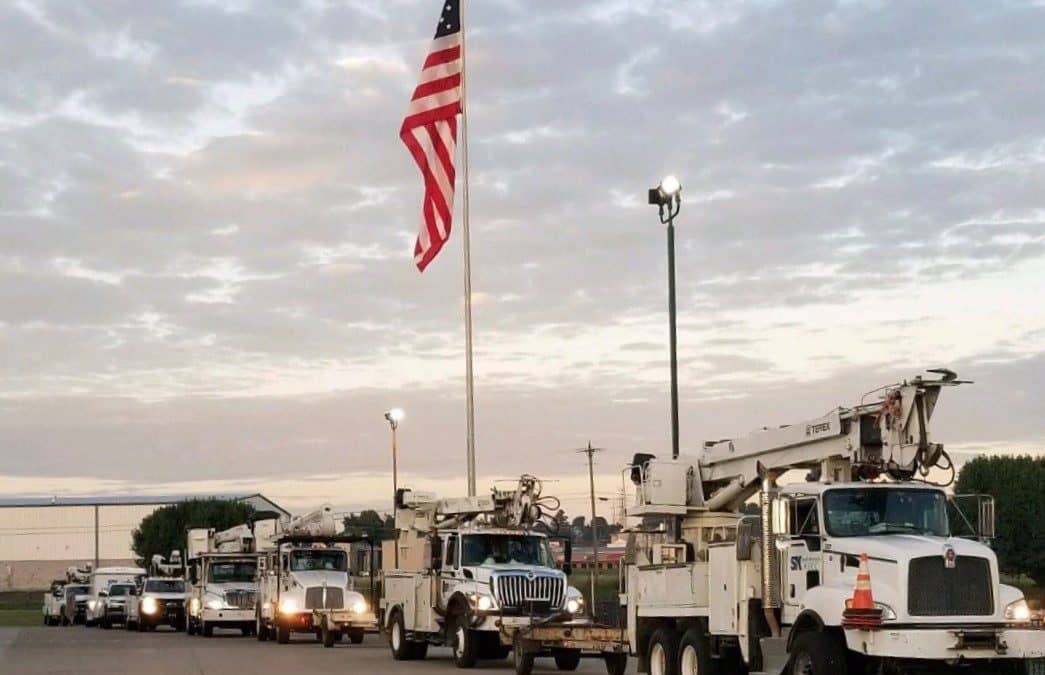(September 5) – More than 100 Kentucky electric cooperative lineworkers are now in South Carolina and North Carolina to help restore power after Hurricane Dorian. Originally assigned to sister co-ops in Georgia, the crews adjusted their deployment with the storm’s trajectory.
Though downgraded to a Category 2 hurricane, Dorian is still packing a powerful punch for the Carolinas with flooding from both the storm surge and heavy rain, high winds and tornadoes. On Thursday night, hurricane-force winds were reported in South Carolina with some damage more than 50 miles inland.
Late Thursday night, an estimated 240,000 homes in South Carolina and 46,000 homes in North Carolina were without power, according to public outage maps.
Crews from seven Kentucky cooperatives are assigned to Four County EMC, an electric cooperative in Burgaw, North Carolina.
Meanwhile, crews from five other Kentucky co-ops are assigned to sister co-ops in South Carolina: Black River EC in Sumter and Coastal EC in Waterboro.
The mutual aid response is coordinated by Kentucky Electric Cooperatives. The statewide association of Kentucky’s 26 electric co-ops participates in daily conference calls with similar co-op organizations in southeastern states to assess potential needs and pair recipient co-ops with available crews and equipment from Kentucky. In addition, Kentucky co-ops have also released dozens of construction and right-of-way contract crews to respond to Hurricane Dorian.
The top priority of each local Kentucky co-op is service to its own consumer-members. Before committing resources to mutual aid requests, each co-op ensures it has ample crews available for all local needs, including routine maintenance and emergencies.
“The Kentucky co-op crews who are on the ground in the Carolinas are making Kentucky proud,” said Chris Perry, president and CEO of Kentucky Electric Cooperatives. “One of our cooperative principles is ‘Cooperation among Cooperatives,’ and this mutual aid effort takes that cooperation to a whole other level. These men face very challenging conditions. We are praying for their safety and the well-being of everyone in Dorian’s path.”
“Linemen are wired to help people,” said Clarence Greene, Safety and Loss Prevention Director at Kentucky Electric Cooperatives. “Mutual aid deployments also provide invaluable training opportunities so these crews will be better prepared to respond to storm damage when it happens here at home.”
Louisville-based United Utility Supply Cooperative is responding to Dorian by implementing its storm emergency plan and providing round-the-clock support to meet the material needs of affected co-ops.
Because the national network of transmission and distribution infrastructure owned by electric cooperatives has been built to federal standards, line crews from any co-op in America can arrive on the scene ready to provide emergency support, secure in their knowledge of the system’s engineering.

